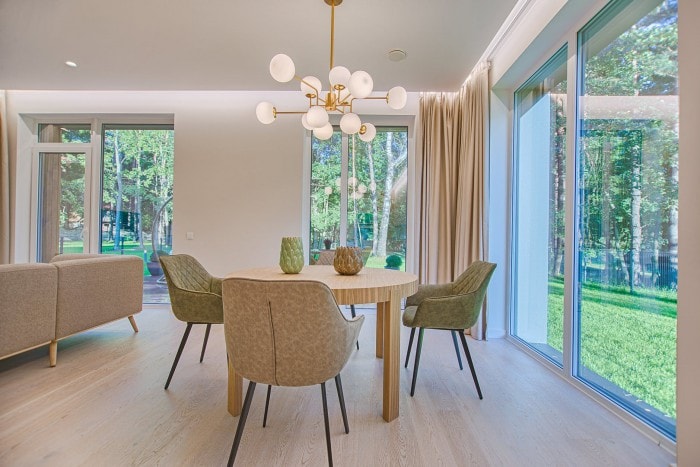
Purchasing your first home is probably the most critical financial steps you’ll ever make in your lifetime. As such, it’s important to take the whole process seriously. You have to take your time to prepare yourself properly for every aspect to make this a blessing; not a negative, regrettable experience. The following are some basic tips to keep in mind when buying a new home.
Establish whether you’re ready to buy a home

You need to first evaluate whether you’re ready to buy the property. Home ownership is significantly more expensive compared to renting. You will have to pay for all the repairs. There may also be added utility costs such as water, electricity, and garbage. Along with that, you also need to pay for insurance and taxes related to the property.
These costs can really add up, and if you aren’t prepared financially, they could end up getting you in a very negative position. So, be sure to take time and get yourself out of debt first and set up an emergency fund before purchasing your first home.
Getting rid of your credit card debt should be among your first steps. While you may be under pressure to purchase a home from family and friends, you should ideally wait until it feels to you like the right time. Taking note of your circumstances, like knowing you’ll probably have to move in the next few years for work could mean having to wait for a few years before committing your cash.
Begin Shopping for a loan
You also need to take some time and shop for the best loan available. You can even get pre-approved first before you even start shopping for a house. This will go a long way in helping you stick within a budget. Contact three or more people before deciding the loan to take.
A mortgage broker can also help you check through the several different loan companies available and help you find the best rates. Nonetheless, your credit union or small local bank might have options that will save you some money as well. With a good, affordable loan, you can now start shopping.
Get the best loan types and payment options

With mortgages, you may be surprised at the sheer number of payment options and loan types available to you. It can actually be baffling when you think about PMI and ARMS. Usually, the best option is a fixed rate of 15 or 20-year loan.
You could be considering using creative financing to cover for your down payment, but you need to be careful when making these choices. Keep in mind that you want to build some wealth with your home purchase. So, making the wrong choice could end up hurting you financially.
In case the property market drops, or if you have to move sooner than you had planned, you might find that you’re underwater with your mortgage and you actually owe more than the house is worth. So, a down payment will help keep this from happening and make it easier to sell when you move.
Be honest about what you can afford
This is a really important part of the process. A good rule of thumb is keeping your mortgage repayments combined with your insurances and taxes between 25% and 30% of your incomes. Other experts believe that the cost of your home should be only limited to 2.5 times your annual salary.
Being house poor can be crippling. If you’re spending too much on your mortgage, you might find yourself failing to meet your daily obligations, not to mention save for retirement. Getting a smaller house will be worth the peace of mind. And if you’re carrying debt (student loans or credit cards), the house payments should be kept on the lower end of this amount.
Get a good realtor
After you’ve determined how much you can really spend on your mortgage and you’re pre-approved for it, the next step is finding a good realtor. They should listen to your needs and wants carefully. They can then make recommendations to explain the market and help you find a home that you can afford and fits your specific needs.
The realtor should also mention the different options available when you are becoming a first time home buyer in Texas. When you do finally make an offer with the realtor, try to negotiate the terms to ones you’re happy with. One great way of finding a good realtor is through recommendations from family and friends.
Get a home inspection

This is another critical step when buying a home. It’s different from an appraisal. You only need to pay for the home inspection. The inspector will help you uncover the hidden problems of the home. With a home inspection, you’ll be able to learn more about serious issues that could prevent you from buying the home. These include termites, mold problems, a bad roof, and foundation problems. Plus, the inspection can save you thousands of dollars in repairs later on, and let you re-negotiate for a better price for the house.
You should have an independent home inspection, ideally one that’s separate from the one the previous homeowner did. If your realtor also represents the people you purchase the house from, it’s recommended that you get an independent inspector to check things on your behalf. Finding a good inspector can save you a lot of money in the future.
Be Patient During the Escrow Period
When your bid and offer for the house has been accepted, you go into escrow. The holder works to ensure that all of the money, documents, and other important information is correct and gathered together before closing. This is set up to protect the buyer, the lender, and the seller.
It can take some time for escrow to complete, though this will really depend on the exact circumstances around your purchase. When everything is all set and done, you only need to sign the closing papers. You might have or might not have to sing your mortgage papers at escrow.
Move in
Once you have closed the sale, it’s now time to move in. You can unpack, paint, and enjoy your new home. You can start the process of changing your address with your banks and other important accounts. Be sure to also set up your utilities and cancel the old ones. Keep in mind that some utility companies will waive installation fees once you transfer an old account to a new address.
